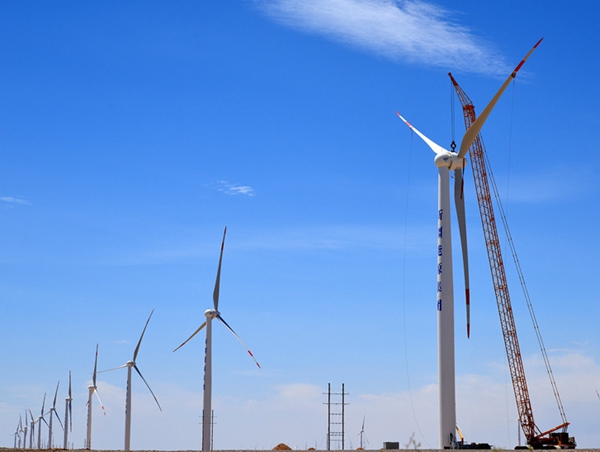Chinese think tank evaluates India's eco-friendly endeavor
- By Wu Jin
 0 Comment(s)
0 Comment(s) Print
Print E-mail China.org.cn, October 11, 2018
E-mail China.org.cn, October 11, 2018

An Indian plan to clean its air, soil and water by dropping coal and opting for renewable energy for power generation is a long process not expected to achieve big results until 2040, the Pangoal Institution, a Beijing-based think tank, has reported.
India needs to upgrade its coal-run power stations with a capacity estimated at 140 million kilowatts, or a market value of 50 to 70 billion yuan (US$7.23 to 10.12 billion), seeking to meet an official commitment to improve the environment.
However, the replacement of coal with renewable energy sources is complicated and time-consuming so a fundamental change cannot be expected short-term, according to the Pangoal analysis.
Concentrating on energy conservation and environmentally-safe production modes, the report, released on Oct. 9, is the first part of a research series projected to cover countries along the Belt and Road Initiative (BRI) region.
"We hope that our research can provide useful information for Chinese enterprises expecting to expand their businesses in the overseas markets," said Bai Yunfeng, vice chairman of the Pangoal Academic Committee.
According to the Chinese Government's 13th Five Year Plan, industries focusing on energy conservation and environmental protection are supposed to be the country's pillar industries both in scale and quality by 2020.
"China and India have faced similar troubles as their energy consumption is substantial," Bai said, "Therefore, we don't want to fall into the same pitfall to prioritize development over environmental protection. We should definitely improve our environment first and foremost before pursuing gains and interests."
According to the report, the wholesale price of electricity generated by solar or wind energy in India is now 20 percent lower than that from existing coal power stations. An overall substitution could help India save US$8 billion each year or cut a cost of US$3 billion if renewable energy makes up one-third of the power generation sector.
The report's lead author Wei Liping said: "despite their rivalry as two major economies in Asia, the economic connectivity between the two countries is close."
According to Wei, India's resolve on getting rid of the pollutants caused by burning coal opens a window of opportunity to Chinese companies.
China and India initiated a strategic and economic dialogue on coordinating economic policies, promoting exchanges and addressing economic conundrums and challenges facing them in December, 2010.
During the fifth dialogue this year, they pledged to enhance cooperation on high-tech projects, infrastructure, environmental protection and energy conservation, hoping that they could become powerful engines to drive regional and global economic growth.
Two years ago, India issued the most rigorous criterion to control the emissions from coal use. However, this has had little impact on local power stations because of lack of suitable technology and various economic challenges.
"India's economy has developed rapidly in recent years, and the development of its electrical capacity has outpaced the economy," said Jiang Hao, the chief engineer and scientist of China Power Conservation and Environment Protection Co Ltd.
According to Jiang, India's consumption of coal for power stations represents 60 percent of the primary energy source, only eight percent lower than China. He believes that a similar energy structure would be conducive to Chinese environment protection firms attempting to tap the substantial market represented by India.
However, the report warned Chinese firms should conduct thorough research and hire local prominent legal experts to fend off potential risks while entering the Indian market with capital or technologies. More to the point, it advised Chinese firms to localize in every possible way to secure a sound development.






Go to Forum >>0 Comment(s)